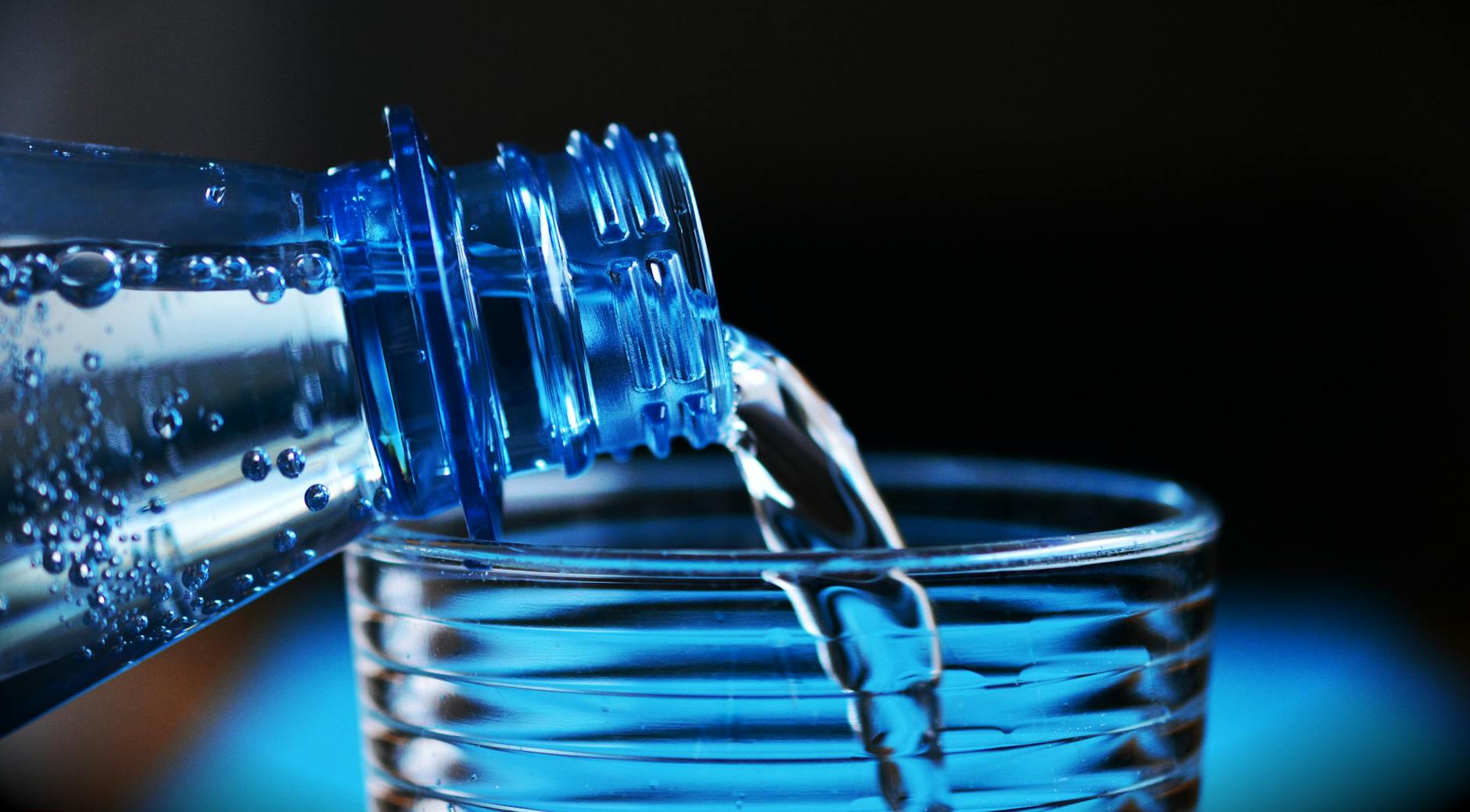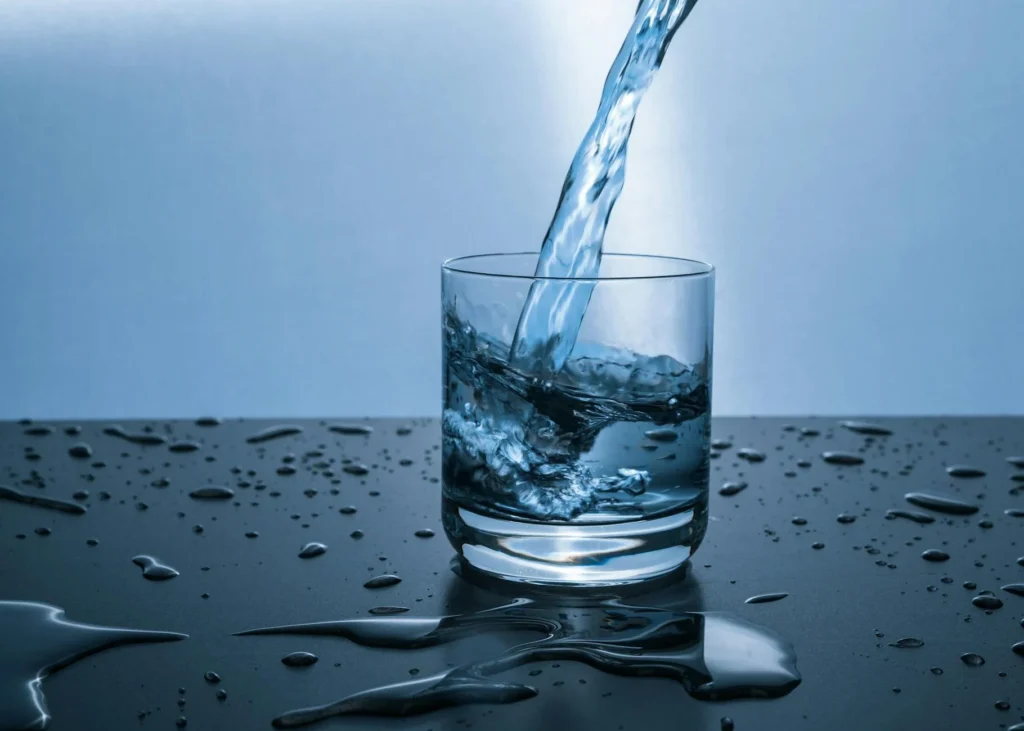Are you feeling sluggish, struggling to concentrate, or battling frequent headaches? The solution might be simpler than you think. 💧 Water, the essence of life, could be the key to unlocking your full potential, both physically and mentally.
In our fast-paced world, it’s easy to overlook the importance of staying hydrated. Yet, this simple act can have profound effects on our overall well-being. From boosting energy levels to enhancing cognitive function, proper hydration is a powerful tool that’s often underestimated. 🧠💪
Join us as we dive into the fascinating world of hydration and explore how this life-giving liquid can transform your body and mind. We’ll uncover the crucial role water plays in bodily functions, reveal the physical benefits of proper hydration, and explore the surprising cognitive advantages of staying well-hydrated. Plus, we’ll equip you with practical strategies to maintain optimal hydration throughout your day. Get ready to quench your thirst for knowledge and elevate your health!

Understanding Hydration’s Role in Body Function
A. Water as the body’s essential nutrient
Water is often referred to as the body’s most crucial nutrient, and for good reason. It plays a vital role in nearly every bodily function, from regulating body temperature to transporting nutrients and oxygen to cells. Unlike other nutrients, the human body can survive only a few days without water, highlighting its paramount importance.
B. Optimal daily water intake recommendations
The amount of water an individual needs varies based on factors such as age, sex, activity level, and climate. However, general guidelines can help ensure proper hydration:
- Adult men: 3.7 liters (about 15.5 cups) per day
- Adult women: 2.7 liters (about 11.5 cups) per day
It’s important to note that these recommendations include water from all sources, including food and other beverages.
| Age Group | Recommended Daily Intake |
|---|---|
| Children (4-8 years) | 1.2 liters (5 cups) |
| Adolescents (9-13 years) | 1.6-1.8 liters (7-8 cups) |
| Adult men | 3.7 liters (15.5 cups) |
| Adult women | 2.7 liters (11.5 cups) |
| Pregnant women | 3 liters (13 cups) |
| Breastfeeding women | 3.8 liters (16 cups) |
C. Signs of dehydration to watch for
Recognizing the early signs of dehydration is crucial for maintaining optimal body function. Common indicators include:
- Thirst
- Dark urine color
- Dry mouth and lips
- Fatigue
- Headache
- Dizziness
- Decreased urine output
- Dry skin
- Rapid heartbeat
- Confusion (in severe cases)
By staying attuned to these signs and maintaining proper hydration, you can ensure your body functions at its best. Next, we’ll explore the specific physical benefits that proper hydration provides to your body.

Physical Benefits of Proper Hydration
Now that we understand hydration’s role in body function, let’s explore the physical benefits of staying properly hydrated.
A. Improved digestion and nutrient absorption
Proper hydration is crucial for optimal digestive function. Water helps break down food, allowing your body to absorb nutrients more efficiently. Here’s how hydration supports digestion:
- Softens stool, preventing constipation
- Aids in the production of digestive enzymes
- Facilitates the transportation of nutrients throughout the body
B. Enhanced cardiovascular health
Adequate hydration plays a vital role in maintaining cardiovascular health. Water helps regulate blood volume and supports proper blood flow. Consider these benefits:
- Reduces strain on the heart by maintaining optimal blood viscosity
- Helps regulate blood pressure
- Supports the delivery of oxygen and nutrients to cells
C. Better temperature regulation
Water is essential for the body’s thermoregulation process. Here’s how proper hydration helps maintain your body temperature:
- Enables sweating, which cools the body during exercise or in hot environments
- Helps distribute heat throughout the body
- Supports blood flow to the skin, aiding in temperature control
D. Increased joint lubrication and flexibility
Staying hydrated is crucial for maintaining healthy joints and overall flexibility. Water acts as a lubricant and shock absorber for your joints. Here’s a comparison of hydrated vs. dehydrated joints:
| Aspect | Hydrated Joints | Dehydrated Joints |
|---|---|---|
| Flexibility | Increased range of motion | Limited mobility |
| Pain | Reduced joint discomfort | Increased friction and pain |
| Cartilage health | Better shock absorption | Increased wear and tear |
| Recovery | Faster healing from exercise | Slower recovery time |
By maintaining proper hydration, you can experience these physical benefits and improve your overall well-being. Next, we’ll explore the cognitive advantages of staying hydrated and how it affects your mental performance.

Cognitive Advantages of Staying Hydrated
Now that we’ve explored the physical benefits of proper hydration, let’s dive into how staying hydrated can boost your cognitive function. The brain, being composed of about 75% water, relies heavily on proper hydration to perform optimally.
Improved Concentration and Focus
Adequate hydration is crucial for maintaining sharp mental focus and concentration. When you’re well-hydrated:
- Your brain cells can communicate more efficiently
- Oxygen delivery to the brain is optimized
- Neural pathways function more smoothly
Studies have shown that even mild dehydration can impair cognitive performance, particularly in tasks requiring attention, memory, and psychomotor skills.
Enhanced Mood and Reduced Stress
Staying hydrated can have a significant impact on your emotional well-being. Here’s how water contributes to a better mood:
- Regulates stress hormones
- Supports neurotransmitter production
- Helps maintain blood volume, reducing fatigue and irritability
| Hydration Level | Mood Impact |
|---|---|
| Well-hydrated | Improved mood, reduced anxiety |
| Mildly dehydrated | Increased tension, fatigue |
| Severely dehydrated | Confusion, irritability |
Better Memory Retention
Proper hydration is essential for optimal memory function. When your brain is well-hydrated:
- Short-term memory improves
- Long-term memory consolidation is enhanced
- Information processing becomes more efficient
Research indicates that students who bring water into exams tend to perform better, highlighting the immediate cognitive benefits of hydration.
By maintaining proper hydration levels, you’re not just quenching your thirst – you’re providing your brain with the essential element it needs to function at its best. Next, we’ll explore practical strategies for maintaining optimal hydration throughout your day.

Strategies for Maintaining Optimal Hydration
Now that we’ve explored the benefits of proper hydration, let’s dive into practical strategies to ensure you’re consistently well-hydrated throughout the day.
A. Incorporating water-rich foods into your diet
Eating foods with high water content can significantly contribute to your daily fluid intake. Here’s a list of water-rich foods to include in your meals:
- Cucumbers (96% water)
- Tomatoes (94% water)
- Watermelon (92% water)
- Spinach (91% water)
- Strawberries (91% water)
B. Setting hydration reminders throughout the day
In our busy lives, it’s easy to forget to drink water regularly. Use these tips to stay on track:
- Set hourly reminders on your phone or smartwatch
- Use apps designed for hydration tracking
- Keep a water bottle visible on your desk or in your car
C. Flavoring water naturally for increased appeal
If plain water doesn’t excite you, try these natural flavor enhancers:
| Flavor Combination | Ingredients |
|---|---|
| Citrus Burst | Lemon, lime, and orange slices |
| Berry Bliss | Strawberries, blueberries, and raspberries |
| Cucumber Mint | Cucumber slices and fresh mint leaves |
| Tropical Twist | Pineapple chunks and coconut water |
D. Monitoring urine color as a hydration indicator
Your urine color can be a reliable indicator of your hydration status:
- Pale yellow to clear: Well-hydrated
- Dark yellow: Mildly dehydrated
- Amber or honey-colored: Moderately dehydrated
- Dark amber or brown: Severely dehydrated
By implementing these strategies, you’ll be well on your way to maintaining optimal hydration levels. Remember, consistency is key when it comes to hydration habits.

Staying properly hydrated is a simple yet powerful way to enhance both your physical and mental well-being. By maintaining optimal hydration levels, you can boost your body’s performance, improve cognitive function, and support overall health. From regulating body temperature to enhancing nutrient absorption, water plays a crucial role in countless bodily processes.
Make a conscious effort to prioritize hydration in your daily routine. Whether it’s carrying a water bottle, setting reminders, or infusing water with natural flavors, find strategies that work for you. Remember, the benefits of proper hydration extend far beyond quenching your thirst – they can significantly improve your quality of life, energy levels, and mental clarity. So, raise a glass to your health and drink up!

